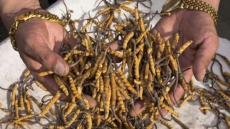For Indians and other South Asians, the risks of developing Type-2 diabetes begin immediately at birth, warns a study by Indian-origin researchers.
When the researchers compared nearly 800 pregnant South Asian and white Caucasian women in Canada, they found that although the babies born to South Asian mothers were significantly smaller, they had more adipose or fat tissue, and a higher waist circumference - known risk factors for Type-2 diabetes.
"The increase we observed in fat tissue is clearly influenced by South Asian ethnicity, the mother's body fat and high blood sugar levels," said principal investigator Sonia Anand, professor of medicine and epidemiology at McMaster University in Hamilton, Canada.
The findings suggest that South Asian women who minimise their risk of gestational diabetes and avoid excessive weight gain in pregnancy may help to prevent diabetes in their own children.
"South Asian pregnant women should be considered high risk for gestational diabetes and routinely screened in pregnancy," Anand said.
"Prevention may be an important way to break the transmission among generations," she pointed out.
South Asians are long known to suffer from substantially higher rates of both diabetes and heart disease.

"Our research re-emphasises the importance of diabetes prevention efforts in South Asians from very early childhood onwards, in order to reduce the eventual burden of diabetes and cardiovascular disease in South Asian adults," one of the researchers Milan Gupta, associate clinical professor of medicine at McMaster University noted.
The researchers have now recruited an additional 1,000 South Asian mothers and their babies in the Greater Toronto region for further study.
They are also involved in a collaborative study in Bangalore where they will compare rural and urban groups, which will then be compared to Canadian urban South Asians.
Researchers also intend to examine how growth in the first year of life may influence future risk of elevated glucose and other cardiovascular risk factors.
The study was published online in the International Journal of Obesity.





